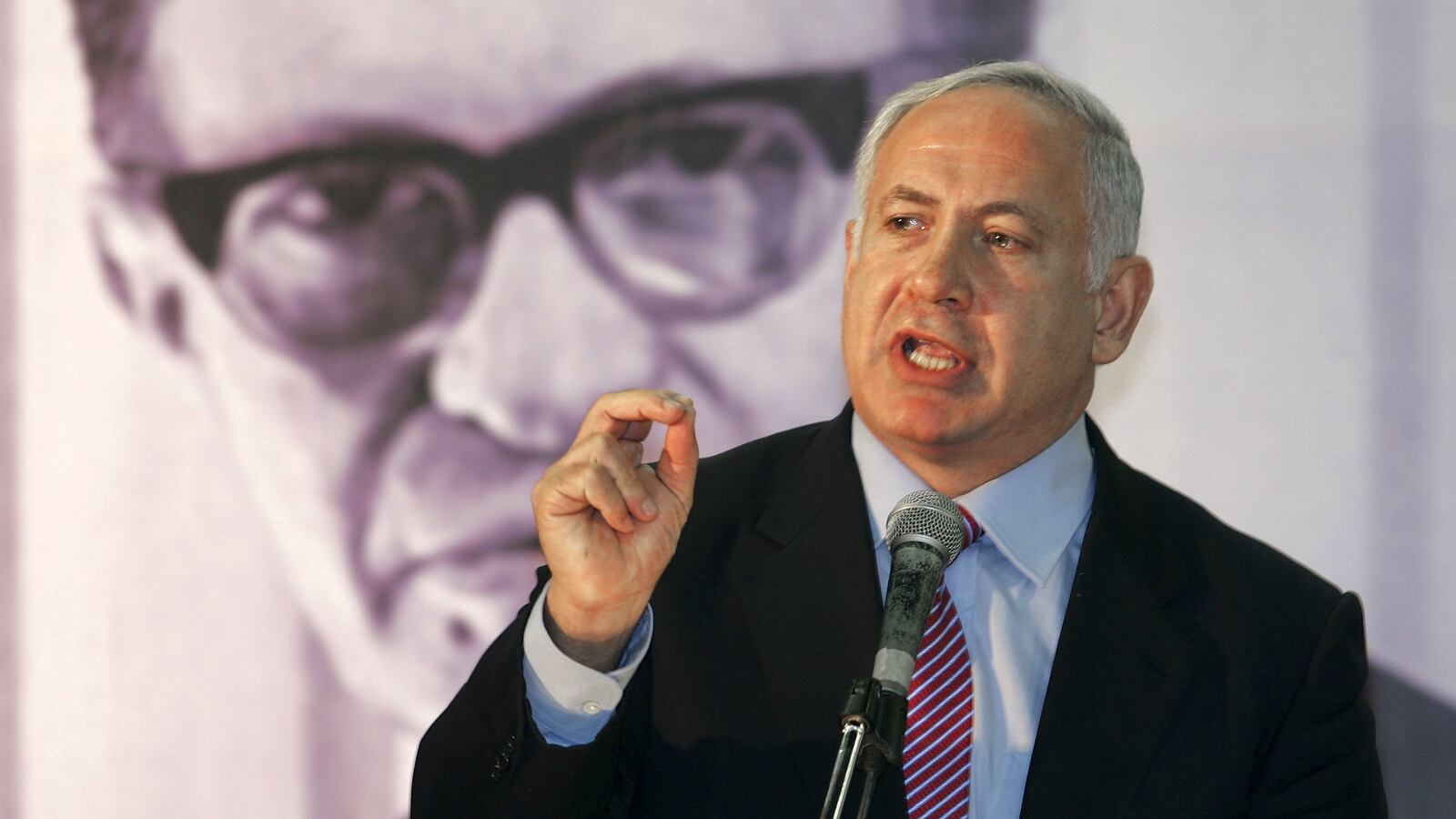Now that Benjamin Netanyahu has been charged with forming Israel’s new coalition, his Likud party is most powerfully positioned to shape the next chapter of the country’s history. But Netanyahu, Likud’s current leader, actually represents a distortion of that party’s legacy as formulated by its founder, Menachem Begin.
Both of these leaders have repeatedly emphasized the centrality of “Jewish values.” But while Begin took these to mean a set of religious morals from which the idea of a Greater Israel could then be derived, for Netanyahu, these values boil down to a struggle over the Land of Israel, and nothing more.

To see how far Netanyahu has strayed from Begin’s example, just consider the latter’s track record. In 1979, when Begin decided to hand over the Sinai Peninsula in exchange for a peace treaty with Egypt, he had to explain why a hawk who’d previously opposed any concession was suddenly willing to sign such a treaty. A deep believer in the connection between Jewish nationalism and the Jewish religion, Begin explained that it was possible to withdraw from the Sinai Peninsula since it had never been a part of Greater Israel as promised to the people of Israel by God in the Bible. In doing so, he made it difficult for religious Israelis and settlers to reject his argument. His ability to leverage the principles of the Jewish faith for peace, while the left abandoned religion altogether, was one of his strengths as a leader.
Mentally, however, this tactic was extremely strenuous for him. On numerous occasions, he invited the settlers to his office during the peace process, despite their criticism. His close aide, Yechiel Kadishai, later testified that Begin knew they represented the steadfast beliefs that he had advanced throughout his youth. He actually wanted to endure a little self-flagellation before he could proceed with what he had believed to be a historic decision.
Undoubtedly, Begin was a complex man, in terms of both his worldview and his personality. This complexity, which epitomizes the difference between Begin’s Likud and Bibi’s, emerges clearly from a few examples.
For starters, since his days as an underground commander during the struggle against the British Mandate, Begin advocated for a Greater Israel that would include the Transjordan, which he perceived as part of the Holy Land. This strengthened his image as an extremist. But he was a dove in other contexts. He confronted Ben-Gurion on the military regime that the government imposed on Israeli Arabs. While Ben-Gurion argued that Israeli Arabs should live under surveillance, Begin submitted a bill to abolish this regime in the Knesset. He contended that, in a real democracy, the army cannot monitor civilians—and, as a result, this regime was ended in 1966.
Moreover, one of the first commands Begin issued to the head of the Shabak—Israel’s internal security service—when he took office in 1977 was to avoid torture. Begin thought such conduct was incompatible with Jewish tradition. He also recalled his time in Soviet prison, where he had never been beaten.
In his first speech as prime minister, Begin astonished the Knesset when he declared that Israel would invite refugees from Vietnam, who were not allowed to enter any other country. He wanted to prove that the Jews had learned two main lessons from the Holocaust. The first was that Israelis should be strong and count on the IDF. The second was that Israel should help the weak when other countries couldn’t or wouldn’t do so.
Even if, like most secular Israelis, Begin accepted the legitimacy of Orthodox religious culture, when the religious parties demanded that Likud oppose the establishment of Hebrew Union College, the Reform seminary in Jerusalem, in 1976, he refused to surrender to their pressure.
There are many more examples of Begin’s unique approach, which blended liberalism with nationalism. For him, the Zionist project was complex and multi-faceted. Today, the only similarity between Begin’s Likud and Netanyahu’s lies in the importance of a Greater Israel. All other aspects of the original approach have been abandoned.
This is Netanyahu's main fault as a leader. Overall, I do not believe he’s a terrible one. He acted very wisely in the face of the Arab Spring, and in his two terms in office he has actually employed a cautious approach. So why, when it comes to building in the territories and the peace process with the Palestinians, is Netanyahu willing to challenge the world and risk the future of Israel as a democratic Jewish state?
In his book, A Place Among the Nations, Netanyahu provides an answer. He argues that “Zionism is a synonym for Judaism” and describes Zionism simply as the Jewish people's aspiration to live in its own land. “After more than 3,000 years of Jewish history it can generally be said that only the Jews who continued to yearn for Jerusalem remained Jewish,” he writes. “Without this organic link to Zion, Judaism loses its identity and eventually disappears.” For Netanyahu, then, the essence of Judaism is to be found in the struggle for the Land of Israel. He only rarely refers to any values apart from it. This monolithic approach has led many Likud members, under his leadership, to attack the Supreme Court, to prefer hyper-capitalism and to give Orthodox Jews a monopoly over Jewish religious practice in Israel.
In these respects, the current Likud deviates from the original. And if Israelis voted for Yair Lapid and not for the core left-wing parties this January, it’s because they still believe in Netanyahu, but want him to lead a more moderate coalition that understands Zionism the way Begin did—as more than just a struggle over land.




